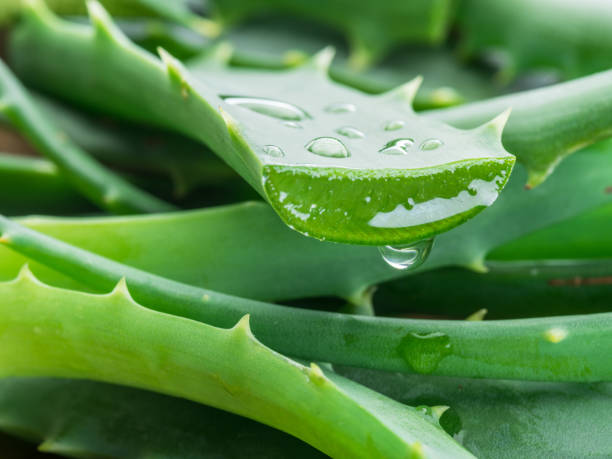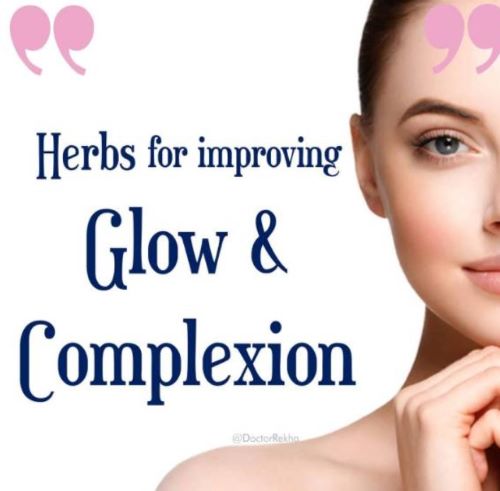Aloe vera is long regarded as a botanical miracle due to its powerful healing abilities. The many health and beauty advantages of aloe vera have attracted generations, from ancient civilisations to modern-day fans. Aloe vera, dubbed the “plant of immortality” by the ancient Egyptians, never ceases to astound with its powers to relieve sunburns, ease gastrointestinal distress, strengthen immunity, and encourage general vigor. In this blog, let us delve deeper into aloe vera’s healing abilities and its role in dental hygiene, skin care, digestive health, and antioxidant support. It is a safe and efficient remedy for various problems, including skin irritations, and digestive and general health improvement. About Aloe Vera In Sanskrit, aloe vera is called Kumari. It has a bitter taste (Tikta Rasa). It is also heavy (Guru), oily (Snigdha) and slimy (Pichhila). The herb is also great for managing the Tridoshas. For centuries, humans have grown aloe vera for its medicinal, cosmetic and aesthetic benefits. The thick, fleshy leaves of the plant are well-known for holding a clear gel-like fluid that is packed with bioactive substances such as antioxidants, enzymes, vitamins, minerals and amino acids. This gel frequently used in multiple forms, including topical creams, gels, drinks and supplements, due to its many health and cosmetic advantages. Aloe vera is used in skin care products to treat eczema, acne, sunburns, and other skin issues because of its well-known calming and healing qualities. It also internally uses as a nutritional supplement to help digestion, strengthen the immune system, and improve general health. It is also a component of oral care products that help to preserve gum health and oral cleanliness. This is a highly valued botanical element because of its many uses and powerful therapeutic qualities. Benefits of Aloe Vera There are several applications and advantages of aloe vera for well-being, appearance and health. It is frequently used for the following purposes: Skincare People frequently apply aloe vera gel topically to relieve and treat various skin ailments, such as dry skin, psoriasis, acne, eczema, sunburns, small burns, cuts, and bug bites. Its antibacterial and anti-inflammatory qualities aid in wound healing, infection prevention, and inflammation reduction. Hair Care Because of its moisturizing, conditioning, and scalp-soothing qualities, aloe vera is frequently included in hair care products such as shampoos, conditioners and hair treatments. It can aid in dandruff reduction, scalp hydration, and healthy hair development. Digestive Health Internal use of aloe vera juice helps to relieve gastrointestinal problems such as constipation, reflux, indigestion, and irritable bowel syndrome (IBS). It eases stomach pain and encourages bowel regularity as a natural laxative. Immune Support Rich in antioxidants, vitamins, and minerals, It helps strengthen the immune system and guard against inflammation and oxidative stress. Taking its juice or supplements can improve general health and boost immunity. Oral Hygiene Oral care products including toothpaste, mouthwash, and dental gels preserve oral hygiene, prevent gum disease, treat mouth ulcers, and freshen breath. Its anti-inflammatory and antibacterial qualities support strong teeth and gums. Anti-aging This herb has amazing anti-aging properties. It helps increase collagen formation, enhance skin suppleness and lessen the appearance of wrinkles and fine lines. Aloe vera gel used regularly can help keep skin looking young and beautiful. Sunburn Relief Aloe vera gel relieves discomfort, inflammation and redness from prolonged sun exposure. Its hydrating and cooling qualities assist in restoring damaged skin cells and encourage healing. Healing Wounds This herb promotes cell regeneration, lowers inflammation, and guards against infection to hasten the healing of wounds. Hence, it helps heal mild burns, scratches and wounds and reduces scarring. These are only some of its numerous applications that demonstrate its adaptability and potency in enhancing health and well-being. Medical uses of Aloe Vera Aloe vera’s strong healing qualities make it useful in many medicinal applications. Compounds in its gel-like composition encourage wound healing by lowering inflammation, avoiding infection, and promoting cell regeneration. This makes it a useful remedy for small burns, wounds, and cuts. This herb is also a well-liked sunburn cure because of its calming and cooling qualities, which reduce discomfort, inflammation and redness. Because of its anti-inflammatory and antibacterial features, it manages skin disorders including dermatitis, psoriasis, acne, and eczema by reducing symptoms like redness, irritation and itching. Furthermore, it also helps calm digestive issues including acid reflux, indigestion and irritable bowel syndrome (IBS) and reduces inflammation. Its juice treats constipation and encourages bowel regularity as a natural laxative. It is a very adaptable and beneficial natural treatment with medical uses. It has a variety of benefits, ranging from healing wounds and calming skin disorders to easing stomach pain and improving general health. Also Read: Ways to Maintain Skin Health with Ayurveda Despite the many amazing benefits of aloe vera, it’s important to use it sensibly. It is best to consult an Ayurvedic doctor before you use it, especially if you have any underlying health conditions or allergies. If you are struggling with any health issues, you can either book a consultation with us or send us a message via WhatsApp to +91 79074 89839. We have the best Ayurvedic doctors in Trivandrum who are always glad to help you. If you have any queries, contact us. You can also visit us at our hospital.
Aloe Vera Benefits for Beauty, Health, Healing




